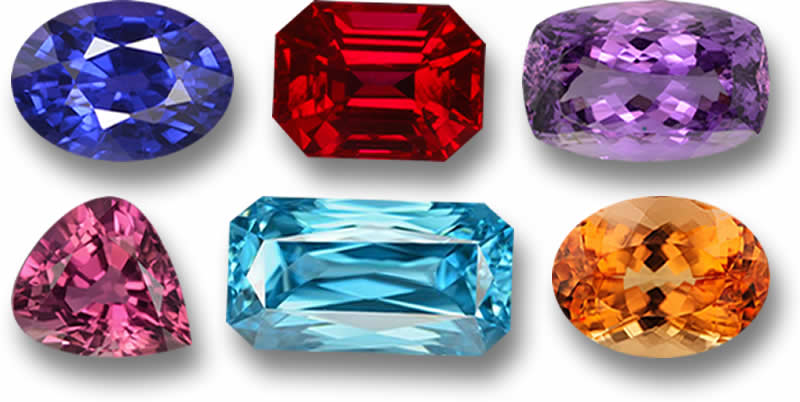Tips for Sourcing Affordable, High-Quality Loose Gemstones Online or at Auctions
Sourcing affordable, high-quality loose gemstones requires a blend of research, strategy, and market awareness, whether shopping online or bidding at auctions. With the rise of e-commerce and global auction houses, buyers can access gems like sapphires, rubies, and emeralds at competitive prices—if they know where to look and how to evaluate quality. This guide provides practical tips for securing valuable stones without overpaying, tailored to the market landscape as of April 2025.

Why Source Loose Gemstones?
Loose gemstones offer flexibility for custom jewelry, investment, or resale, often at lower costs than pre-set pieces. Online platforms and auctions provide access to a wide range of stones, from budget-friendly quartz to rare tanzanite, making them ideal channels for cost-conscious buyers seeking quality.
Tips for Sourcing Online
Online marketplaces expand your options but require diligence to ensure value and authenticity:
- Choose Reputable Vendors: Shop from established sites like GemSelect, GemsNY, or Rio Grande, known for certified stones and buyer reviews.
- Look for Certifications: Prioritize gems with GIA, AGL, or SSEF certificates to verify quality and avoid treated or synthetic stones passed off as natural.
- Compare Prices: Use tools like Gemval.com to check market rates (e.g., a 1-carat blue sapphire might range $200-$1,000) and spot deals.
- Buy in Bulk: Purchase lots (e.g., 10 small amethysts) from wholesalers online for discounts, ideal for resellers or multiple projects.
- Check Return Policies: Ensure a 14-30 day return window to inspect stones in person, as photos can mislead.
Tips for Sourcing at Auctions
Auctions offer opportunities for rare finds at below-market prices, but preparation is key:
- Research Auction Houses: Focus on reputable venues like Sotheby’s, Christie’s, or Bonhams, which offer detailed lot descriptions and provenance.
- Set a Budget: Decide your max bid (e.g., $500 for a ruby) and stick to it to avoid overbidding in the heat of the moment.
- Preview Lots: Attend pre-auction viewings or study online catalogs to assess clarity, color, and inclusions with a loupe if possible.
- Target Undervalued Gems: Bid on lesser-known stones (e.g., spinel, tourmaline) that fetch lower prices than diamonds or sapphires.
- Factor in Fees: Account for buyer’s premiums (15-25%) and taxes, which can add 20-30% to your final cost.
Key Gemstones and Sourcing Options
The table below compares popular gemstones with sourcing strategies and typical costs:
| Gemstone | Best Sourcing Method | Quality Check | Avg. Cost (per carat, 2025) |
|---|---|---|---|
| Sapphire | Online (certified vendors) | Color, clarity certificate | $200 - $1,500 |
| Ruby | Auction (undervalued lots) | Origin, treatment disclosure | $500 - $5,000 |
| Emerald | Online (bulk deals) | Inclusion level | $100 - $1,000 |
| Amethyst | Online (wholesale) | Uniform color | $5 - $50 |
Note: Costs vary by size, quality, and market trends; ranges are indicative.
Additional Strategies for Savings
Maximize value with these practical approaches:
- Buy Off-Season: Shop online in slower months (e.g., January) or bid at auctions post-holiday for lower competition.
- Negotiate: Contact online sellers directly for discounts on multiple stones or slightly imperfect gems.
- Avoid Overhyped Gems: Opt for alternatives like garnet over ruby to get similar looks at a fraction of the cost.
Conclusion
Sourcing affordable, high-quality loose gemstones online or at auctions is achievable with the right strategies. By leveraging reputable platforms, verifying certifications, and targeting undervalued lots, buyers can secure valuable stones without breaking the bank. Whether for jewelry making, investment, or collection, these tips empower you to navigate the gemstone market confidently, balancing cost with quality in an ever-evolving landscape.

